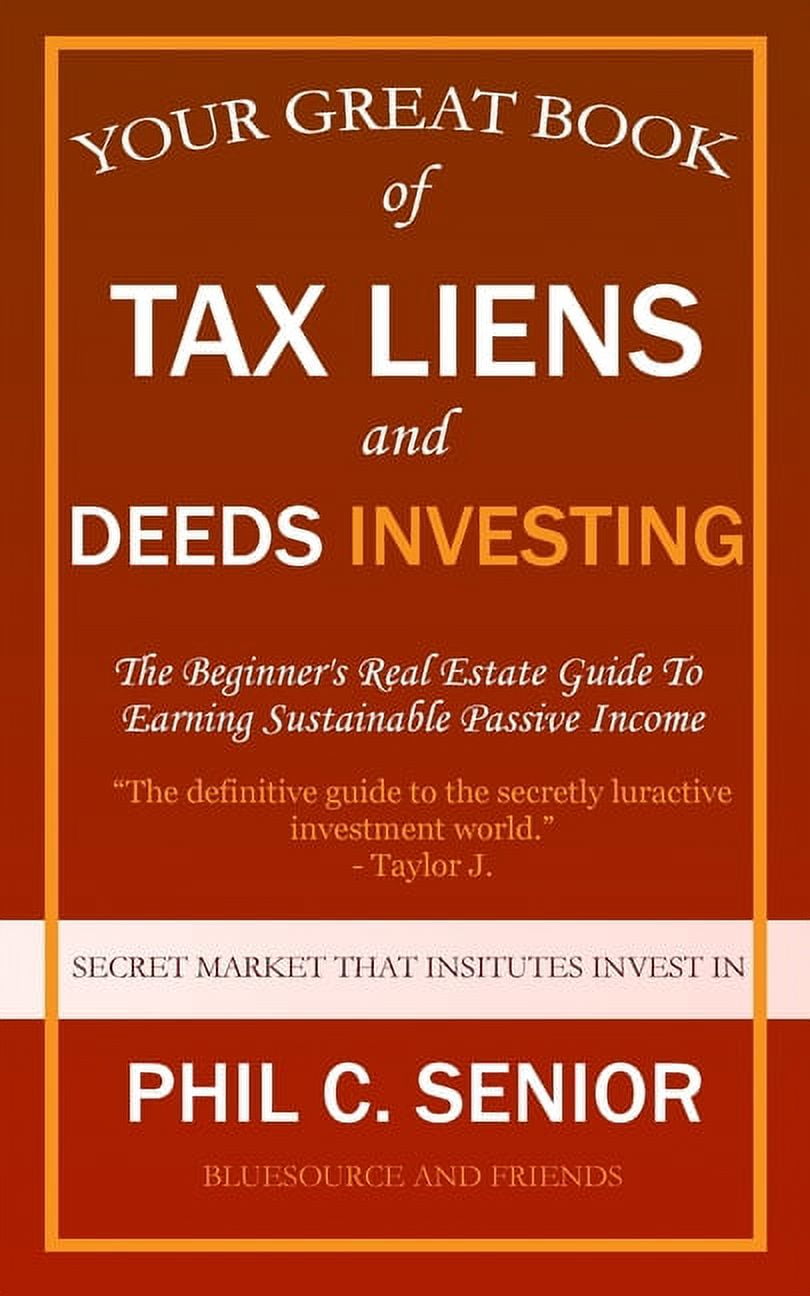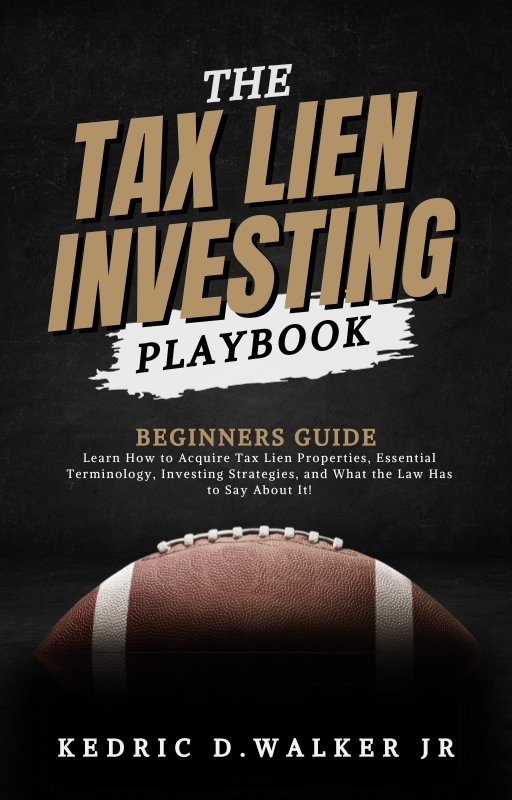All Categories
Featured
Table of Contents
If you want the tax lien foreclosure process, you ought to get in touch with a lawyer so you recognize and weigh the risks of this kind of investment. - how to invest in tax lien
Tax obligation lien sales are one way that cities and regions attempt to redeem a few of the public bucks they have actually spent preserving these buildings deserted by personal owners. But, as we'll clarify in this short article,. As soon as home tax obligations are taken into consideration delinquent, city governments typically concentrate on providing notice of misbehavior and trying to gather the overdue quantities from the owner.
This procedure usually takes years - investing in tax lien certificate. If an owner has actually left and hesitates to pay taxes or preserve the residential property, the city has to invest tax bucks to maintain the home. These costsboarding up the building, cutting disordered yard and weeds, replying to fire and authorities contacts the residential or commercial property, and moreadd up

Proprietors that have actually fallen on difficult times absolutely require every initiative to maintain them out of delinquency and in their homes. However typically, if the building is uninhabited and worn-out, we have to presume the proprietor has actually chosen to abandon their rate of interest in the residential property and that they are "unwilling" to pay (though circumstances previously in the process may have compelled their hand).
Real Estate Investing Tax Lien Certificates
Take, for example, a single-family home where the proprietor has actually time out of mind left. For years the local government has actually had to action in and remove garbage dumped in the yard, board up the doors and home windows, and respond to phone calls concerning illicit activity on the property. All these services set you back the regional federal government taxpayer bucks.
In numerous states, those costs can be collected similarly as the overdue taxes, however not in all. (Something that Area Development highly promotes in favor of.) At some point, the overall financial obligation becomes higher than what the residential property could cost. In a tax obligation lien sale (or tax obligation certificate sale) the local federal government normally holds a public auction where the winning bidder agrees to pay one of the most cash for the right to implement the tax lien, starting with a minimal quote of a minimum of the tax obligations owned, plus appropriate interest, charges, and costs.

When a federal government sells the tax obligation lien they are generally offering to a personal purchaser the regional federal government's authority to accumulate the debt in exchange for in advance repayment of the taxes owed. The purchaser's purchase typically consists of the capability to gain future rate of interest, as well as recoup related fees and costs sustained by the buyer, if the building proprietor pays the tax obligation financial obligation.
This is, in significance, privatization of a core government function: taxation. Tax lien sales are particularly negative when it comes to uninhabited, deserted, and worn-out homes because they prolong the period before a residential or commercial property can be moved right into the hands of a brand-new, more responsible proprietor. Exclusive tax obligation lien customers hold the financial obligation, however they do not have the titlethe lawful right to ownership of the propertyand in numerous instances, they have no rate of interest in getting it.
Tax Lien Investing Crash Course
Thinking about budget cuts, city governments in lots of states have actually decreased internal home tax obligation collection and enforcement initiatives and aimed to tax obligation lien sales as a fast infusion of profits - are tax liens good investments (how to invest in tax liens online). Several areas select or are mandated by the state to market tax liens since it contracts out collection and typically generates really required cash money earlier in the collection process
By transferring the city government's interest in and enforcement of the tax obligation lien to an exclusive buyer, local federal governments lose much of their flexibility: versatility to get uninhabited residential or commercial properties that the personal market does not desire, or to help the owner stay clear of shedding their residential property. With uninhabited homes, there is a much greater possibility that the personal buyer isn't curious about the residential or commercial property itself.
Tax obligation lien sales can cause damage in traditionally disinvested areas. In a depressed real estate market, less owners are able to redeem the quantity of the debt offered to a tax obligation lien buyer. These locations are ripe for a different kind of tax lien investorspeculative owners seeking to acquire residential properties on the inexpensive by confiscating on the building tax lien, bleeding what bit equity is left by renting a substandard residential or commercial property to vulnerable tenants, and then abandoning the building when they have actually gained back their financial investment.

Not all state laws provide city governments the power to intervene in this cycle. In either case, the home remains uninhabited and in limbo, all the while enforcing considerable expenses on its neighbors and taxpayers. It's understandable that several regional governments turn to tax lien sales due to the fact that they aid fund vital civil services.
If the city government instead offers the residential or commercial property (aka the "tax act"), instead of the tax obligation financial debt, then they are in control of what occurs to the property and the enforcement process if the proprietor proceeds to not pay the real estate tax owed. The government will give the owner a sensible time to repay the tax financial debt, after which the federal government will seize its rate of interest in the tax obligation lien and the owner's right of redemption.
From their beginning, these auctions were places for investors to benefit via exploitation. In early 20th-century cities, infamous "tax sharks" like Chicago's Jacob Glos and New york city's Charles Wiltsie accumulated fortunes by buying up scores of tax obligation liens on property buildings, billing their proprietors expensive quantities to get rid of the lien, or waiting up until the due date for settlement passed and claiming the deed.
Learn Tax Lien Investing

Telephone calls to eliminate tax obligation lien sales and overhaul tax obligation misbehavior regulations have regularly appeared. Often, they have actually been available in feedback to cases of inadequate, commonly elderly property owners that lost their homes to underhanded tax customers over small tax obligation financial obligations. With a couple of exceptions, state legislatures have actually resisted structural reforms (how do you invest in tax liens).
Those who have repaid their mortgages (mainly senior citizens or individuals that had inherited a household home) need to also locate the cash to pay real estate tax. This describes why 70 percent of the homes cost tax lien sales are possessed outright. It is well previous time for states to adopt an even more humaneand extra effectivesystem for real estate tax enforcement.
Table of Contents
Latest Posts
Excess Sales
Homes Behind On Taxes
Tax Lien On Foreclosed Property
More
Latest Posts
Excess Sales
Homes Behind On Taxes
Tax Lien On Foreclosed Property